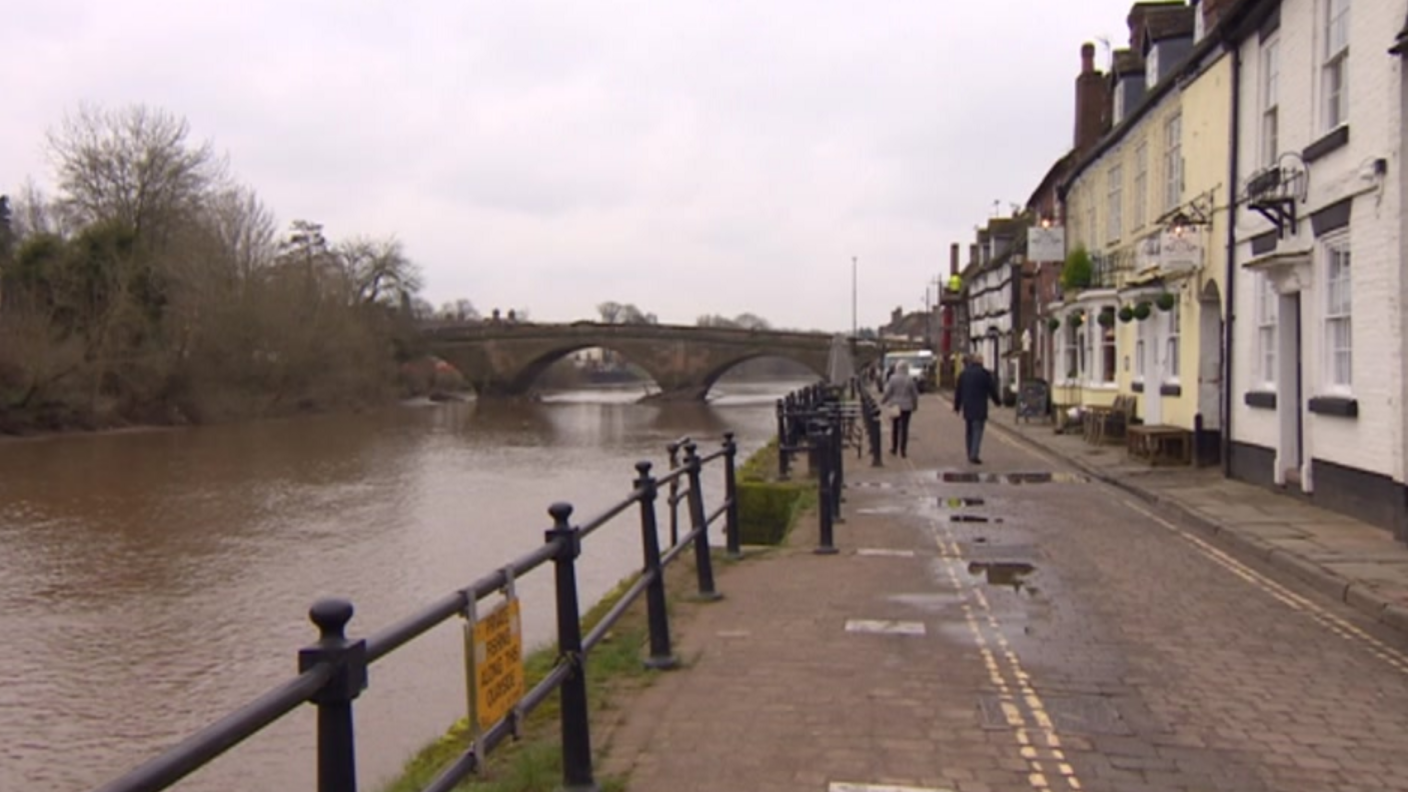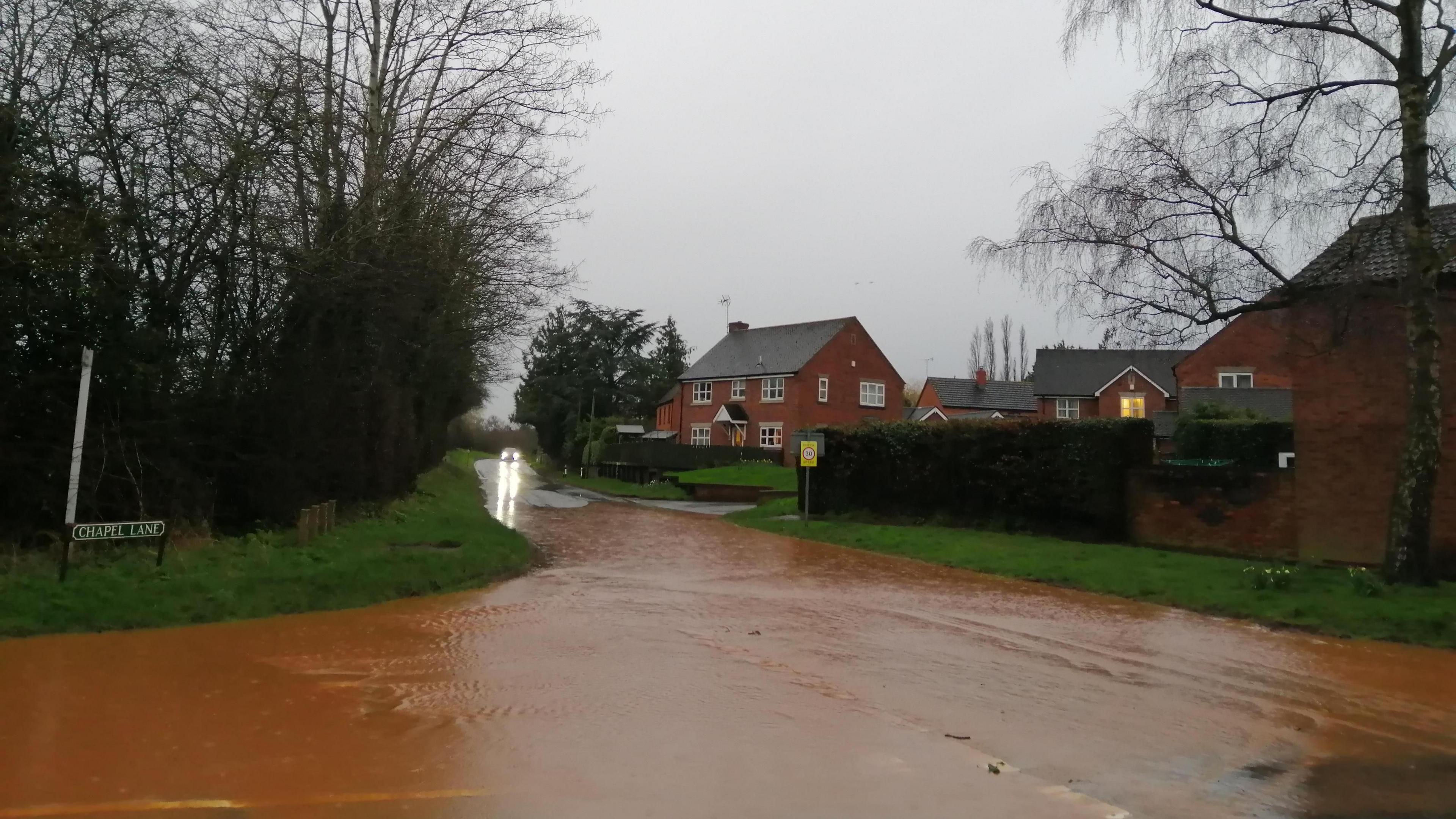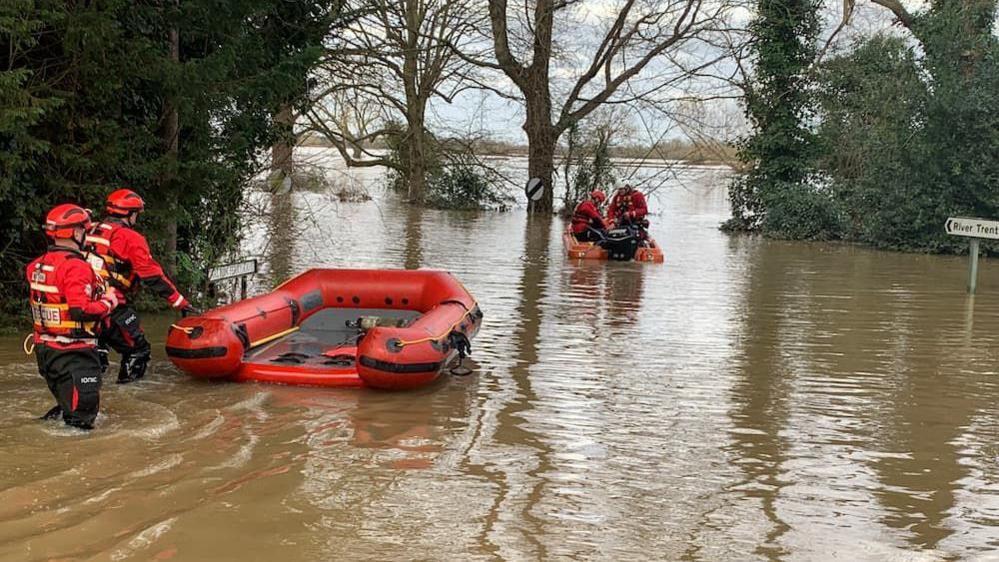Reducing the risk of flooding - what can be done?

Work is continuing on permanent flood barriers in Bewdley, Worcestershire
- Published
The thing about climate change is you run out of colours for your maps.
Right now the "rainfall total" map for the Midlands is covered in the darkest shade of blue, showing in the last month we've had more than 200% of the usual rainfall we expect.
In places, there has been 222% of the average rainfall and if we get just a few percent more we need to add a whole new colour to the chart.
Likely black, it's what we've done before.
'Swollen Severn'
But this is what life is like living with the effects of climate change.
Right now the soil, groundwater, rivers, reservoirs and ponds are groaning with water. We've already seen plenty of flooding this winter and it won't take much rain to see a lot more.
It's almost 25 years since I covered my first major flood in the Midlands. I remember going to talk to people in Bewdley who were stunned and shocked by the swollen Severn pouring into their homes.
The problem was Bewdley hadn't seen a major flood for 11 years and a lot of knowledge about how to cope with a big flood had been lost in that decade. But the Severn would go on to flood another five times that year alone.
'Wetter Winters'
Of course on it's own you can't say that soggy week I spent in Bewdley in 1998 was a direct result of climate change. You can't simply link a one-off event to a change over time.
But today, if I stand back and look at all the flooding stories I've covered, over decades of reporting, the trend becomes apparent.
We're seeing wetter winters with much more intense rain events and that means our floods are getting bigger and more frequent.
In Bewdley they came up with the temporary flood barriers.
I reported on them when they were shown to the town's people as an idea imported from Germany. Giving protection but removable, so the look of Bewdley could be preserved.
It's an idea since adopted all over the country.
And now, 20 years on, the houses and businesses on the other side of the river are getting protection too.
But there's a limit to what engineering can achieve. You can only build a barrier so high. Some places will never be suitable for defences. How can we protect these areas from a problem that's only getting worse?
That's what we're looking at this week on Midlands Today. How can we reduce the impact of flooding in the first place, using better data, changing the landscape in our countryside and in our towns?
Right now the Committee on Climate Change says our attempts to plan for a changing climate fall "far short" of what is needed. And it's not just colours on our maps we're running out of, it's time to do something about it.
Follow BBC West Midlands on Facebook, external, X, external and Instagram, external. Send your story ideas to: newsonline.westmidlands@bbc.co.uk, external
- Published22 February 2024

- Published7 January 2024
